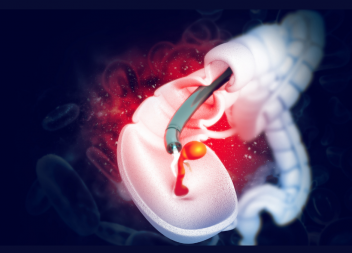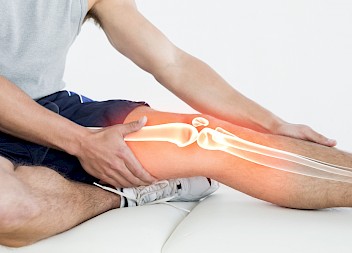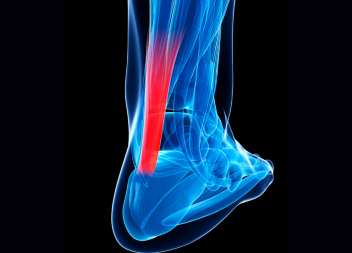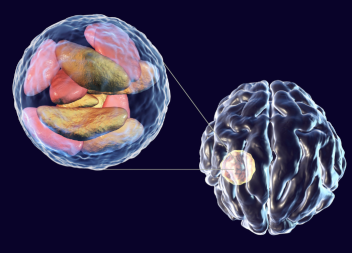A man who developed discitis after spinal surgery that went undiagnosed and untreated for almost nine months, despite having had three MRI scans which noted inflammation and disc depreciation, has been awarded £530,000 compensation.
Before surgery in August 2015, our client ‘C’ was a self-confessed workaholic who enjoyed various hobbies including fishing and motorbiking. He was 48 at the time of injury and has been unable to return to his much-loved role as an electric contractor due to the relentless pain he still has, going from a high paid salary to reliance on benefits. Along with severe pain, his injuries have impacted his mental health and relationships with his partner and teenage daughter, relying on help with basic tasks like cooking and cleaning.
His case was handled by specialist clinical negligence solicitor, Miriam Bi, who reached the out-of-court settlement in February 2022.
Discitis case background
The Claimant ‘C’ had a slipped disc and was experiencing pain in his leg and back due to the herniated disc pressing on two different nerves. He was told he could only have microdiscectomy to relieve the pressure on one nerve, so he chose the leg area as that was his most severe pain.
C had the surgery in August 2015 which went without complications and he noticed an improvement in his pain initially. C was discharged from the defendant hospital the following day.
A week later, he had an appointment with his GP where he said his pain had been resolved and he was walking much better. The following week, surgical stitches were removed and the wound cleaned.
By September 1st, he was experiencing leg spasms but his pain was still 70 percent better than pre-surgery. Three weeks later, he complained of a sudden increase in pain and was struggling to walk. At his six-week check-up with the surgeon, he was experiencing severe lower back pain and stiffness. His back was also sore to touch. The surgeon wasn’t sure why this was the case but requested a routine MRI. During proceedings, expert opinion was that if the surgeon has suspected an infection, as would likely be reason for requesting an MRI, then C should have been admitted to hospital and had the scan immediately.
However, this didn’t happen and his condition worsened. The following week he fell while trying to get out of bed and was stuck on the floor for five hours unable to move. He was admitted to hospital where junior doctors queried whether he could have discitis. An MRI scan noted inflammation which suggested a post-operative infection, but no biopsy was done to rule this out or confirm.
C was discharged and saw a consultant at the end of October for the pain he was still experiencing. The consultant requested a second MRI but specifically told C’s GP not to prescribe antibiotics despite a blood test showing an increased level of C-reactive protein in his blood – another sign of inflammation.
The second MRI scan was performed at the beginning of December which showed a reduction in the disc height and an increase of fluid. This should have been a warning sign that the infection was destroying the disc tissue. However, there was deemed no clinical evidence of infection at the wound site – which there wouldn’t have been as the infection is contained within the spinal disc and not the tissue around it.
By the beginning of 2016, there was finally a mention of doing a biopsy. But C had a fear of needles so requested it be done under general anaesthetic which was declined by the radiologist on safety grounds; patients who are put to sleep wouldn’t feel a nerve being compromised during the procedure. Instead, C was told he could have it done under local anaesthetic or have another MRI – he opted for the latter which was performed at the end of March 2016. The scan showed bone on bone impaction which had caused another disc to slip. Medics were now not convinced there was an infection, but evidently the disc would have been deteriorated due to an infection.
By this time, it had been six months since his pain started and a cause still hadn’t been outlined. Six weeks later, C started a 12-week antibiotic course. Once this was completed in September – almost a year after the pain began – C’s GP wrote to the consultant to say he had not seen an improvement.
C was sent for a fourth MRI scan then referred to a pain management clinic where he was given a TENS machine to manage his pain at home after exhausting all pain relief medication including tramadol, diazepam, morphine and nerve root injections. He was told there was nothing more surgically that could be done and so was discharged in November 2016.
Miriam began working on C’s case in 2017 and supported him through a lengthy complaints procedure which resulted in the defendant trust ‘D’ confirming there was never a confirmed diagnosis of discitis so that’s why antibiotics were never given – despite queries from consultants and junior doctors.
D denied liability throughout the pre-action protocol so court proceedings were issued in March 2020. Parties exchanged expert evidence on liability. This included reports from a spinal surgeon, radiologist and microbiologist. Both parties were also given permission to rely on reports from experts in the field of spinal surgery, pain, psychiatry, nursing and care to help with quantifying the value of C’s claim. After seeing C’s expert evidence on liability, D invited C to a Joint Settlement Meeting. An out-of-court settlement of £530,000 was reached on Valentine’s Day 2022.
This included claims for general damages, loss of congenial employment, past and future care costs, specialist equipment including mobility scooter and aids, adapted vehicle expenses, pain rehabilitation, psychiatric therapy, occupational therapy, gardening expenses, and past travel costs.












